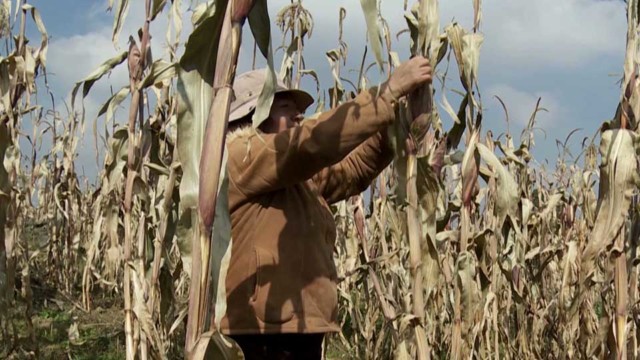Mexico’s government is making back-up plans in case the United States decides to leave the North American Free Trade Agreement (NAFTA).
Mexican officials defend NAFTA, calling it a benefit to the national economy. But as CGTN’s Franc Contreras reports, some Mexican farmers want out.
Small plot farmers date back more than 100 years, to the Mexican Revolution. Since, General Emiliano Zapata lead of the peasant revolt, they’ve fought for their right to make a living by working the land.
Most small-scale Mexican farmers argued NAFTA has only boosted the gains of U.S. agro-food corporations.
Victor Suarez, director of the National Association of Agricultural Producers in Mexico, points to corn as an example. Mexico first pioneered the crop thousands of years ago. But Suarez said that Mexico is now the largest buyer of American corn.
“The United States government continues to subsidize its corn exports to Mexico far under production costs. That is an unfair disadvantage for Mexican producers, especially the small-scale producers,” Suarez said.
During previous rounds of NAFTA renegotiations, the Mexican government defended the trade pact, both in public and before the Mexican Congress.
“Today in Mexican fields, we have 1.7 million more farmers than in 1994, when NAFTA first came into effect. Since then, Mexican agricultural production has grown 74 percent,” Secretary of Agriculture Josen Calzada said.
Under NAFTA, a few well-financed Mexican agricultural sectors, like the avocado industry, have grown. Even so, since NAFTA first came into existence most Mexican, small-scale farmers have opposed the trade pact. However, it’s not for the same reasons cited by U.S. President Donald Trump.
“We are not in agreement with Trump. We are against this trade agreement because it does not benefit common people,” Suarez said.
Suarez said NAFTA leaves out producers of indigenous crops like high-protein amaranth.
“More than six million small-scale farmers have abandoned their fields in search of employment in the cities or in the United States. By abandoning the fields, Mexico has become dependent on the U.S. for its nutrition,” Suarez said.
Such nutritional dependence, they’ve said, goes against centuries of Mexican tradition.
 CGTN America
CGTN America

